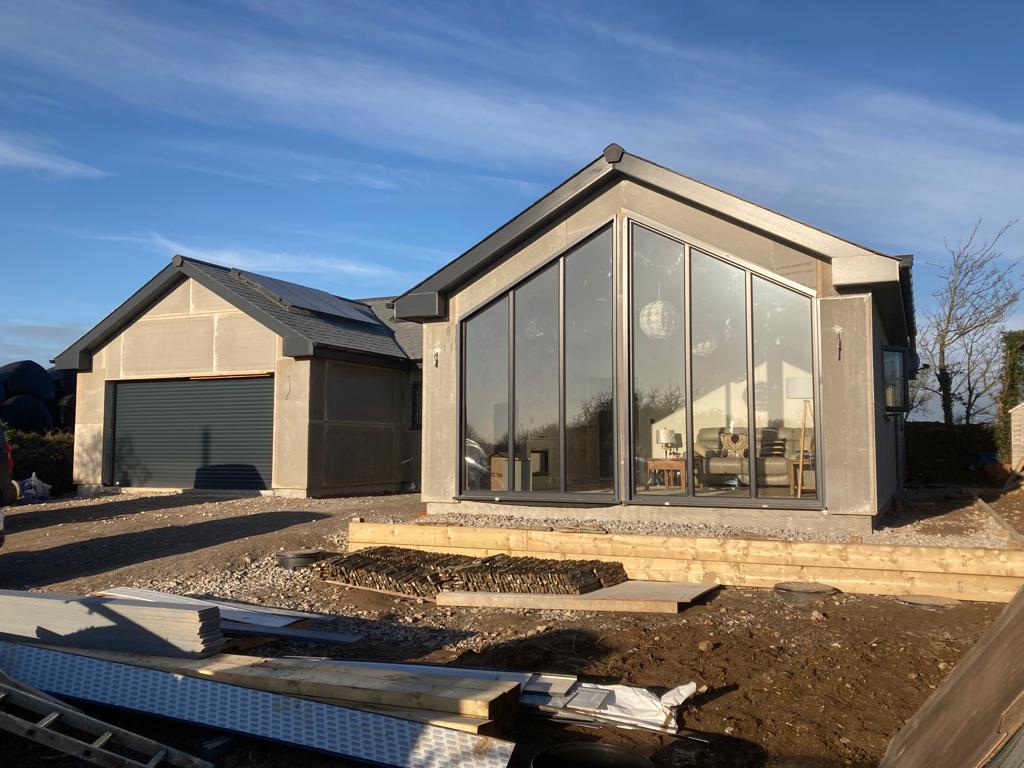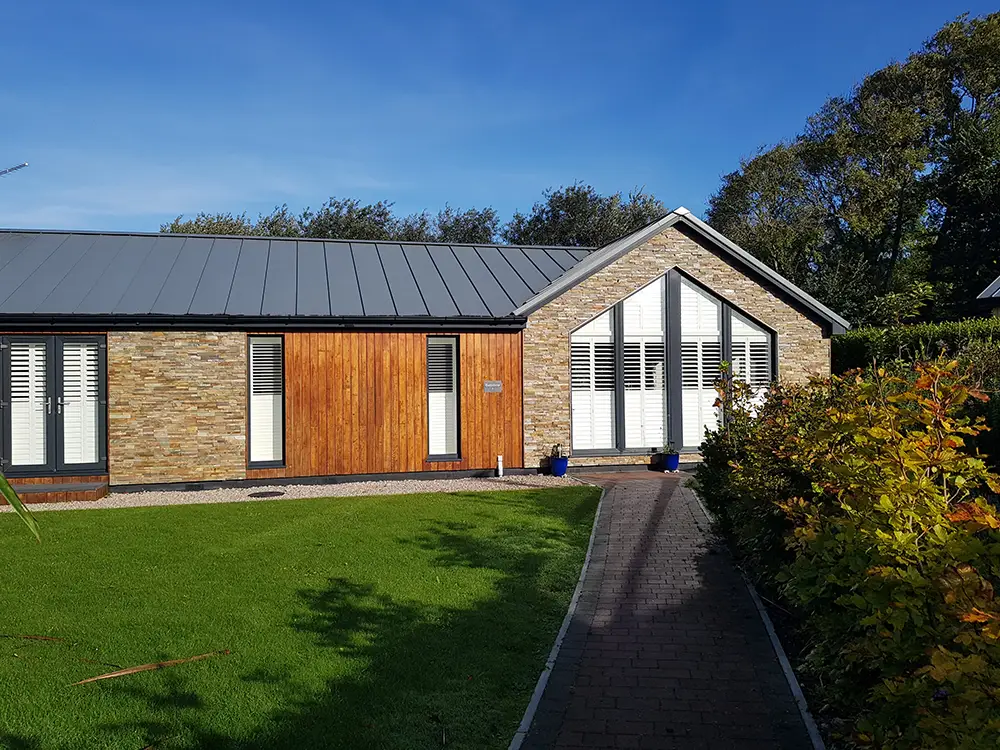If you’re contemplating entry into the realm of agricultural land, whether to expand your existing farm, create rural worker accommodations, or repurpose current structures, this blog post serves as your primary resource. Grasping the complexities of securing planning permission for agricultural land is pivotal before embarking on any such endeavour. In this piece, we’ll dissect the process and provide valuable insights.
Astute investors are continually on the lookout for opportunities to maximise their investments. Acquiring land at an economical price presents an excellent cost-saving avenue when undertaking a construction project. However, a significant price discrepancy exists between land with planning consent and land without it, especially within agricultural settings. The former can cost up to 50 times more than the latter. Consequently, if you’re mulling over the purchase of unplanned land, it’s imperative to evaluate its potential for value addition. Depending on your goals, navigating the planning process can be intricate, necessitating a profound understanding of the implications to assess the investment’s feasibility.
Initial Considerations for Development on Agricultural Land
Numerous unwary investors have fallen prey to schemes peddling agricultural land with promises of future residential development potential. These advertisements frequently furnish detailed particulars, including proximity to local educational institutions and even fictitious access routes, constructing an alluring façade. Nevertheless, securing planning permission for agricultural land represents a formidable challenge. Hence, if you’re contemplating such a purchase, exercising vigilance is vital to ensure that you’re not squandering your financial resources.
For certain individuals, embarking on construction activities on agricultural land offers an avenue to augment their income. Conversely, for others, agriculture is an integral way of life. Farmers may be compelled to extend their existing farmland to sustain their lifestyle, cater to their livestock, or augment their earnings. Notwithstanding, the regulations governing such undertakings are stringent, encompassing permitted development rights for agricultural ventures. In light of the climate crisis, environmental preservation assumes paramount importance. Government guidance seeks to safeguard the “best and most versatile” agricultural land against inappropriate or unsustainable development while promoting responsible soil management.
Nevertheless, there exist valid reasons to seek planning permission for agricultural land, encompassing agricultural pursuits, rural worker accommodations, and exploration of changes in land use or building conversions. In the ensuing sections, we’ll delve into these rationales to furnish a clearer comprehension of the planning permission procedure applicable to agricultural land.
Understanding Agricultural Land
Agricultural land garners classification for specific purposes, principally encompassing:
- Livestock rearing
- Crop cultivation
- Related industries
This categorisation aligns with the government’s initiative to enhance the environment, underscoring the significance of preserving the “best” agricultural land for environmental and economic prosperity. While the agricultural sector has witnessed contraction over the past century, domestic production remains indispensable. Further depletion could precipitate shortages and escalating prices.
When Is Planning Permission Required for Agricultural Land?
Ownership of agricultural land might necessitate planning permission for three principal reasons:
- Development designed for agricultural purposes
- Alteration of land use or structures from agriculture to alternative functions
- Construction for rural worker accommodations
In these instances, seeking professional counsel is imperative to steer your application towards a triumphant conclusion.
Securing Planning Approval for Agricultural Purposes
The National Planning Policy Framework extends allowances for circumventing Green Belt policy, and permitting construction catering to agriculture and forestry. However, such endeavours must genuinely serve agricultural objectives, with “previously developed land” excluding areas previously occupied by agricultural or forestry structures. Consequently, alignment with agricultural needs constitutes a preliminary step in crafting a successful planning argument.
Considerations like access, biodiversity/ecology ramifications, choice of materials, and visual impact on Green Belt openness (if applicable) must also be addressed. Local authorities may establish specific criteria to ascertain valid agricultural purposes, underscoring the importance of maintaining realistic expectations.
The National Planning Policy Framework recognises the importance of preserving agricultural land’s integrity while acknowledging its economic contributions. “The best and most versatile agricultural land” is defined as land categorised in grades 1, 2, and 3a of the Agricultural Land Classification. Policy considerations also incorporate land quality, favouring the utilisation of lower-quality land for significant agricultural development when necessary.
Securing Planning Approval for Rural Worker Accommodations
National policy extends support for housing development aligned with local needs, particularly in rural regions, both within and beyond Green Belt zones. NPPF Paragraph 80(a), commonly referred to as the rural worker exception, allows housing construction when essential for rural workers, including those assuming predominant control of a farm business, to reside near their workplace in rural environs. Demonstrating this necessity assumes paramount importance, especially in cases necessitating round-the-clock care for livestock or overnight vigilance for specific crops.
Crafting a compelling argument for rural worker accommodations can pave the way for expanded construction. Nevertheless, meticulous consideration of all material planning considerations remains crucial when submitting your application.
Contemplating Temporary Planning Permission
In certain scenarios, applying for planning permission for temporary dwellings, such as caravans or mobile homes, presents a viable option. This facilitates residence on the land for up to five years while substantiating the necessity of on-site living. Validating your business’s sustainability and the imperative for on-site residency assumes critical significance. Upon the conclusion of this interim period, submission of a comprehensive application for permanent home construction, substantiated by evidence gathered over the preceding years, is essential.
Land Use Alteration: Possibilities and Considerations
For perceptive developers, agricultural land utilisation proffers avenues for diverse developmental prospects in the future. One illustrative example is the provision of Class Q permitted development rights, permitting the conversion of disused barns into residential units. Additionally, Class R permitted development rights broaden horizons, encompassing diverse applications such as commercial use, holiday accommodations, or recreational spaces. Nevertheless, prior approval applications are requisite to ensure compliance with these rights.
While not subject to identical considerations as comprehensive planning applications, prior approval submissions necessitate comprehensive information, encompassing floor plans and adherence to minimum space standards. In certain circumstances, full planning consent may be obligatory contingent upon the land’s geographical positioning and classification.
Initiating Planning Permission for Agricultural Land
The application process for planning consent on agricultural land closely parallels standard planning application procedures. It entails meticulous evaluation, comprehensive planning, and submission to the pertinent local authority.
Fostering Acquaintance with the Planning Officer
Engaging with the planning officer tasked with oversight of agricultural land can significantly enhance prospects of success. Cultivating a working relationship aids in comprehending their anticipations and affords them insight into your aspirations. While planning officers may find it easier to decline applications, effective communication can bolster prospects of endorsement.
Delving into the Particulars
Planning applications mandate meticulous attention to detail. Aspects such as access, structure positioning, dimensions, harmony with the surroundings, effects on neighbors, and adherence to planning authority stipulations should be comprehensively addressed. Eliminating oversights ensures a robust application.
Expecting a Consultation Phase
When seeking planning permission on agricultural land, an integral consultation phase is instituted to amass input and viewpoints. Consultations typically encompass local councils, neighboring residents, highway engineers, environmental health officials, and other specialists. The outcome of these consultations plays an instrumental role in the final decision-making process.
Receiving an Application Rejection
Not every planning application secures approval. In the event of a rejection, it is imperative to heed advice dispensed by the planning authority. Rejection may assume the form of outright denial or recommendations for enhancement. Learning from a rejection experience can prove invaluable for future applications.
Soliciting Professional Guidance
Given the intricacies and challenges affiliated with obtaining planning permission for agricultural land, procuring the services of a specialist planning consultant is strongly advised. These professionals possess an intimate comprehension of the regulations governing agricultural land and can facilitate the formulation of a well-considered application that withstands scrutiny.
Exploring Alternatives to Planning Applications
Although certain laws permit construction on agricultural land without necessitating planning permission, these options entail associated risks, particularly when endeavouring to erect residential structures. Minimum land area prerequisites and potential enforcement complications render this a high-risk strategy. It is generally advisable to adhere to regulations and pursue planning consent in accordance with established protocols.
In Conclusion
Securing planning permission for agricultural land embodies a multifaceted process that demands meticulous evaluation, adherence to regulations, and professional guidance. Whether your aspirations encompass expanding agricultural operations, creating rural worker accommodations, or investigating alternative land utilisation, comprehending the intricacies of planning consent proves indispensable. By enlisting the expertise of seasoned professionals and adhering to best practices, you can surmount challenges and enhance the likelihood of a favourable application outcome.
Facilitating Joint Ventures and Land Acquisition with Mod Box Space
In the realm of agricultural land development and securing planning permission, forging strategic partnerships and acquiring suitable land are pivotal steps. This is where Mod Box Space comes into play as a valuable resource for investors, developers, and landowners.
Joint Ventures in Development
Mod Box Space specialises in facilitating joint ventures in land development projects. If you’re an investor or developer looking to maximise the potential of your agricultural land, Mod Box Space can help you identify suitable partners and structure joint ventures that align with your goals. Joint ventures can be a powerful way to pool resources, share risks, and leverage expertise in agricultural land development. Mod Box Space’s expertise in this area can help you navigate the complexities of joint ventures, ensuring that all parties benefit from the collaboration.
Property Development Assistance
Once you’ve secured the land and obtained planning permission, the next crucial step is property development. Mod Box Space offers expertise in this phase as well. Whether you’re planning to construct agricultural buildings, convert existing structures, or explore alternative land use, their team can assist with project management, design, and construction. Their experience in sustainable and innovative building solutions can help you optimise your property development projects. In conclusion, Mod Box Space serves as a comprehensive partner in the agricultural land development journey. From facilitating joint ventures and land acquisition to providing support in property development, our expertise and resources can significantly enhance your prospects for success in the ever-evolving landscape of agricultural land development.




